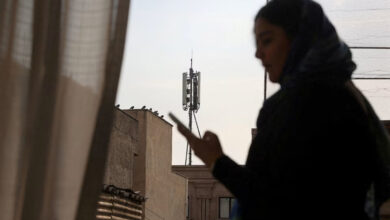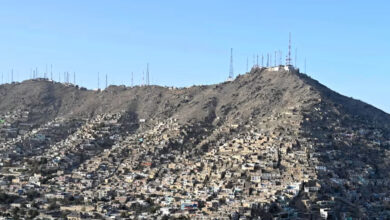Press freedom in Egypt has suffered under military rule, with the country dropping 39 spots on the annual Press Freedom Index compiled by Reporters Without Borders.
Egypt was ranked 127th in 2010 and 166th in 2011, the Paris-based organization said in a statement Wednesday.
Heightened unrest around the world resulted in a significant shake-up of the index, which assesses governments' commitment to protecting media freedoms, noted the statement.
“Egypt fell because the Supreme Council of the Armed Forces, in power since February, dashed the hopes of democrats by continuing the Mubarak dictatorship’s practices. There were three periods of exceptional violence for journalists: in February, November and December,” the non-profit organization said.
In its report released Wednesday, Reporters Without Borders listed Egypt among the “countries where repression continues and changes are just cosmetic.”
“Most of the region’s countries have fallen in the index because of the measures taken in a bid to impose a news blackout on a crackdown,” the report said of the Middle East and North Africa region.
“Egypt plummeted 39 places because of the attempts by Hosni Mubarak’s government and then the Supreme Council of the Armed Forces to rein in the revolution’s successive phases," read the report.
“The hounding of foreign journalists for three days at the start of February, the interrogations, arrests and convictions of journalists and bloggers by military courts, and the searches without warrants all contributed to Egypt’s dramatic fall in the index.”
The changes resulting from Arab revolutions did not push toward greater pluralism and the freedoms Egypt achieved last year have started to unfold, the report said. Some media outlets paid dearly for covering democratic aspirations and the opposition movements last year, according to the statement, and media censorship has remained under the control of authoritarian and oppressive regimes since the uprisings.
Eritrea, Turkmenistan and North Korea still occupy the lowest ranks on the index of 179 countries and represent absolute dictatorship regimes, followed by Syria (176), Iran and China. Bahrain and Vietnam also fall near the bottom and other countries including Uganda and Belarus dropped in the rankings.
Tunisia made notable progress on the index, climbing 30 spots from 164 to 134 thanks to what the statement called turning the page of repression of former President Zine al-Abidine Ben Ali’s regime.
Libya moved up from 160 to 154, while Bahrain fell 29 spots to occupy the 173rd position and join the ranks of the 10 most repressive countries. Yemen also fell one place to 171.




